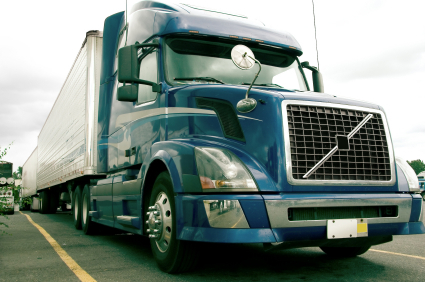How Can You Tell If a Truck Is Overloaded?

When a large, commercial truck is overloaded, it puts the lives of others on the roadway at risk. If you see an overloaded big rig on the road, the best thing to do is get out of its way. Fortunately, there are certain visible signs to clue you in when a truck is overloaded.
Signs of an Overloaded Truck
When you encounter a tractor-trailer on the road, look for the following signs that the truck’s cargo exceeds weight limit restrictions:
- Suspension springs are compressed: A truck carrying a load within weight restrictions typically bounces somewhat. If it doesn’t, this could be because the suspension springs on the wheels have been compressed by overloading.
- The truck appears overloaded: If the cargo is bulging over the sides of the truck or stacked over the top, it is probably carrying more cargo than it should be.
- The truck struggles to slow down: If you see a tractor trailer braking but taking too long to slow down, it is likely overloaded. The heavier the load, the more difficult it is to slow the forward motion of the truck.
- The driver is having difficulty maintaining control: Overloading a truck can affect its steering capabilities. If the driver appears to be struggling to maintain a straight path or to regain control after avoiding an obstacle, it is likely that the truck is overloaded.
What Are the Risks of an Overloaded Truck?
The Federal Motor Carrier Safety Administration (FMCSA) has strict regulations regarding the loading of cargo on large commercial trucks. The cargo must be properly secured, the weight must be evenly distributed throughout the trailer, and the cargo must be within allowable weight limits. When trucking companies ignore these regulations, overloaded tractor trailers become a threat on the roads. The following are some of the risks associated with overloaded trucks:
- Rollovers: Overloading increases the chance of a truck rollover, which can seriously endanger other motorists on the roadway.
- Jackknifing: Overloaded trailers are more prone to jackknifing. In this situation, the trailer swings from behind the tractor to form a 90-degree angle. When a tractor-trailer jackknifes, the truck can easily roll over, or the trailer can swing out across lanes of traffic, colliding with other vehicles.
- Stress on brakes and tires: Brake failure is one of the leading causes of truck accidents, and truck tire blowouts are not uncommon. The additional stress of a load that exceeds weight restrictions can contribute to the failure of a truck’s brakes or tires.
- Less control in inclement weather: Wet roads are dangerous enough for 18-wheelers. Add in overloading, and the truck could easily spinout, colliding with other vehicles and causing a multi-car pileup.
If you or your loved one has been injured in a collision caused by an overloaded truck, you may have a claim for compensation. Contact Allen Flatt Ballidis & Leslie at (949) 752-7474 to schedule a free consultation. In our initial meeting with you, there are no time limits or restrictions. Our Orange County auto accident attorneys will work with you to determine if you have a case and what damages you may be entitled to claim.
Even if you aren't sure you have a case, give us a call at (888) 752-7474, or fill out our Free Case Review below.
We are here to help.
 RSS
RSS


